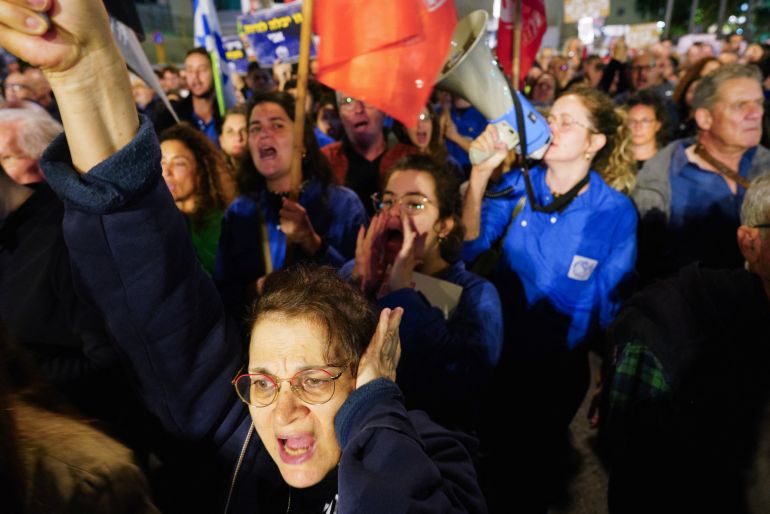ADDING
Hospitals cut off as Israel batters southern Gaza
list 2 of 4
Families of hostages storm Israeli parliament meeting
list 3 of 4
Relatives of Israeli captives storm Knesset
list 4 of 4
Photos: Palestinians flee Khan Younis as Israel steps up ground operation
end of list
US website Axios quoted Israeli officials as saying that the proposal has been presented to Hamas through Qatari and Egyptian mediators. It includes a two-month truce during which all Israeli detainees in Gaza will be released.
US Middle East envoy Brett McGurk is in Cairo and is expected to travel across the region for “active” discussions on a possible hostage release deal.
White House spokesperson John Kirby said Washington would support a longer humanitarian pause in Gaza to ensure the release and for aid to be brought in.
“The conversations are very sober and serious about trying to get another hostage deal in place,” Kirby told a regular White House briefing, adding that the discussions included how long of a pause would be needed to get the hostages out.
Qatar also said mediation efforts were ongoing.
“We are engaged in serious negotiations and discussions between the two sides of the crisis in Gaza,” Foreign Ministry spokesman Majed al-Ansari told a press conference in Doha.
Phases
Reporting from occupied East Jerusalem, Al Jazeera’s Stefanie Dekker said that the proposal included plans to release captives in phases, starting with women and those over 60.
A second phase would see a handover of female soldiers and men deemed as non-soldiers by Hamas. The third phase would include male soldiers and bodies remaining inside Gaza.
Meanwhile, Israeli soldiers could be redeployed away from some urban areas to allow Palestinians to return home.
“Of course, the question is what do they have to return to,” said Dekker.

In Israel, the families of the captives have been applying increasing pressure on Prime Minister Benjamin Netanyahu to agree a deal. Amid the ongoing bombardment of Gaza, they worry that time is running out to bring their relatives home alive.
On Monday, dozens of relatives stormed a parliamentary committee meeting, demanding that the government seek a deal to win their loved ones’ release.
Stuttering
A weeklong truce in November saw the release of about 100 of the 240 or so captives taken into Gaza on October 7 when Hamas launched a surprise attack inside Israel. Efforts to put another pause or even ceasefire in place have been stuttering since.
But Israel is facing mounting impatience as it ignores calls to scale back its onslaught.
The EU on Monday gave Israel’s Foreign Minister Israel Katz short shrift as he pitched the construction of an artificial island in the Mediterranean near the Gaza coast as a hub for the enclave’s commercial relations with the rest of the world.
But facing political pressure and demands from hardline coalition partners, Netanyahu has repeatedly vowed to press ahead with the offensive until Hamas is crushed.
The reports of the truce negotiations come amid an intensification of fighting in southern Gaza, with the hundreds of civilian casualties adding to the death toll in the enclave, which local authorities now say tops 25,000.
The Palestine Red Crescent Society said early on Tuesday that its headquarters in Khan Younis had been shelled.
Writing on X, the NGO said that the shelling coincided with “intense gunfire from Israeli drones, resulting in injuries among internally displaced individuals who sought safety on our premises”.
UN agencies and aid groups have sounded the alarm about the growing threat of disease and famine in Gaza, where 1.7 million people are estimated to have been displaced from their homes.
That makes a cessation of fighting ever more urgent, and there will be hope that alongside the pressure from the families, recent troop losses could give added momentum to efforts towards dialing down the conflict.
On Tuesday, the Israeli military reported it lost at least 21 soldiers in one of the deadliest attacks on its troops since the war began three months ago.
